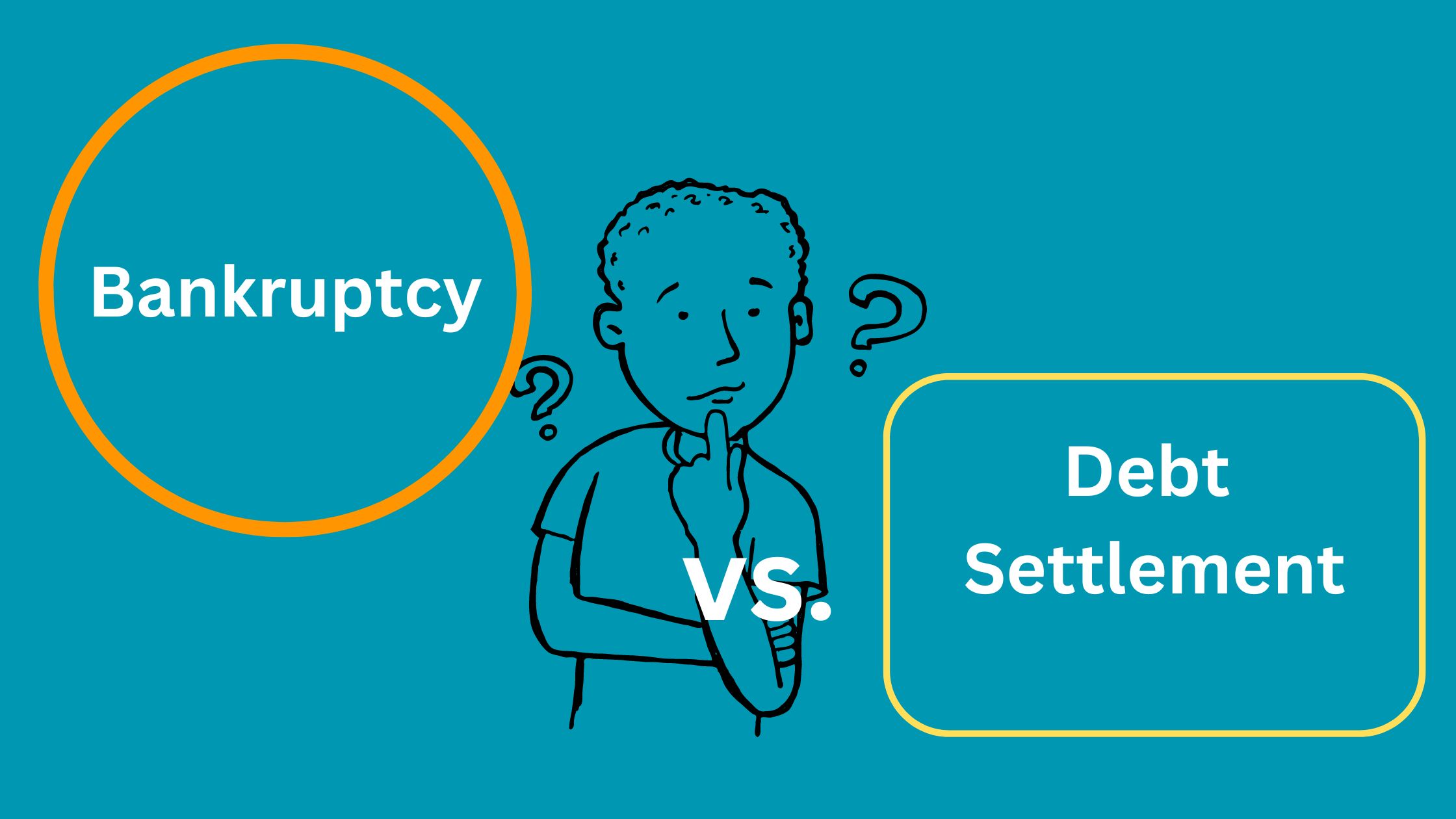Debt settlement and bankruptcy are two options available to individuals who are struggling to pay off their debts such as personal loans, business loans, credit cards, and other debts.
To help you better understand the difference between debt settlement and bankruptcy, we decided to write a detailed overview of the two.
Here is the comparison and explanation:
Debt settlement:
Debt settlement is negotiating with creditors to reduce the amount of debt that is owed.
Debt settlement may be an option for individuals who are unable to make the minimum monthly payments on their debts but have some disposable income or assets that they can be used to pay off a portion of their debts.
On the down side, debt settlement can have a negative impact on the debtor’s credit score, as the creditor may report the debt as “settled” or “paid partially” rather than “paid in full.” The other problem is that settling a debt usually involves fees charged by the debt settlement company that will be added to your balance.
Bankruptcy:
Bankruptcy is a legal process that allows individuals to have their debts discharged, either partially or in full.
Filing a bankruptcy may be an option for individuals who are unable to pay off their debts and do not have any assets or disposable income that can be used to pay off a portion or all of of their debts.
A bankruptcy can have a severe negative impact on the debtor’s credit score, as it will remain on the credit report for up to 10 years. Most lenders are OK with lending to borrowers with a BK in the last 5 to 7 years with a hit to the rate for the increased interest rate.
Bankruptcy usually requires a lawyer and involves legal fees and costs.
Deciding between debt settlement and bankruptcy
When you are deciding between debt settlement and bankruptcy, it’s important to note that both debt settlement and bankruptcy should only be considered as a last resort, after all other options for paying off debts have been exhausted. It’s always a good idea to speak with a financial advisor or a bankruptcy attorney before making a decision about which option is best for your situation.

